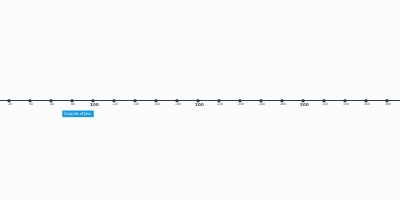mar 13, 1295 - Establishment of English Parliament
Description:
Initially, parliaments were mostly summoned when the king needed to raise money through taxes. Following the Magna Carta this became a convention. This was due in no small part to the fact that King John died in 1216 and was succeeded by his young son Henry III. Leading peers and clergy governed on Henry's behalf until he came of age, giving them a taste for power that they would prove unwilling to relinquish. Among other things, they made sure that Magna Carta would be reaffirmed by the young king.Parliament in the reign of Henry III
Once the reign of John ended and Henry III took full control of the government, leading peers became increasingly concerned with his style of government, specifically his unwillingness to consult them on decisions he took, and his seeming patronisation of his foreign relatives over his native subjects. Henry's support of a disastrous papal invasion of Sicily was the last straw. In 1258, seven leading barons forced Henry to swear to uphold the Provisions of Oxford, superseded, the following year, by the Provisions of Westminster. This effectively abolished the absolutist Anglo-Norman monarchy, giving power to a council of fifteen barons, and providing for a thrice-yearly meeting of parliament to monitor their performance. Parliament assembled six times between June 1258 and April 1262, most notably at Oxford in 1258.
The French-born nobleman Simon de Montfort, Earl of Leicester, emerged as the leader of this characteristically English rebellion. In the following years, those supporting Montfort and those supporting the king grew more hostile to each other. Henry obtained a papal bull in 1263 exempting him from his oath and both sides began to raise armies. At the Battle of Lewes on 14 May 1264, Henry was defeated and taken prisoner by Montfort's army. However, many of the peers who had initially supported Montfort began to suspect that he had gone too far with his reforming zeal. His support amongst the nobility rapidly declined. So in 1264, Montfort summoned the first parliament in English history without any prior royal authorisation. The archbishops, bishops, abbots, earls and barons were summoned, as were two knights from each shire and two burgesses from each borough. Knights had been summoned to previous councils, but the representation of the boroughs was unprecedented. This was purely a move to consolidate Montfort's position as the legitimate governor of the kingdom, since he had captured Henry and his son Prince Edward (later Edward I) at the Battle of Lewes.
A parliament consisting of representatives of the realm was the logical way for Montfort to establish his authority. In calling this parliament, in a bid to gain popular support, he summoned knights and burgesses from the emerging landed gentry class, thus turning to his advantage the fact that most of the nobility had abandoned his movement. This parliament was summoned on 14 December 1264. It first met on 20 January 1265 in Westminster Hall[1] and was dissolved on 15 February 1265. It is not certain who actually attended this parliament. Nonetheless, Montfort's scheme was formally adopted by Edward I in the so-called "Model Parliament" of 1295. The attendance at parliament of knights and burgesses historically became known as the summoning of "the Commons", a term derived from the Norman French word "commune", literally translated as the "community of the realm".
Added to timeline:
Date:
mar 13, 1295
Now
~ 731 years ago
